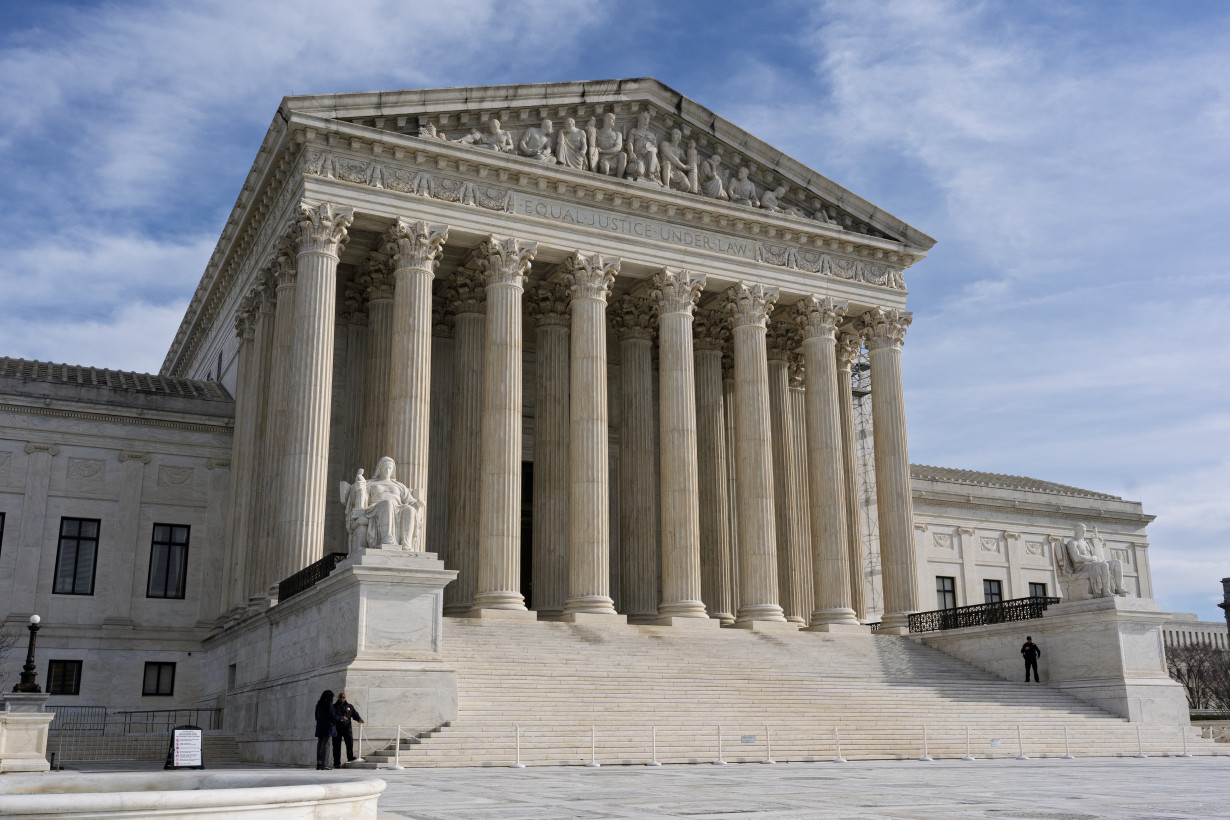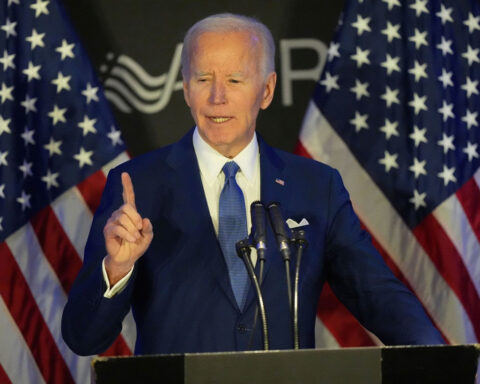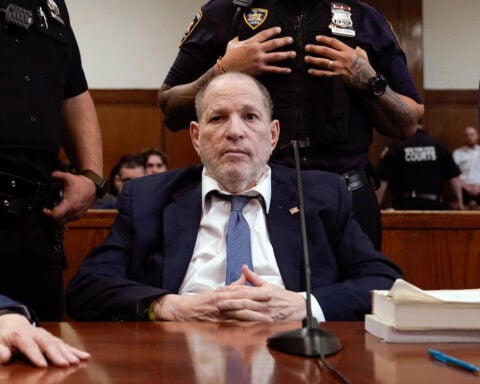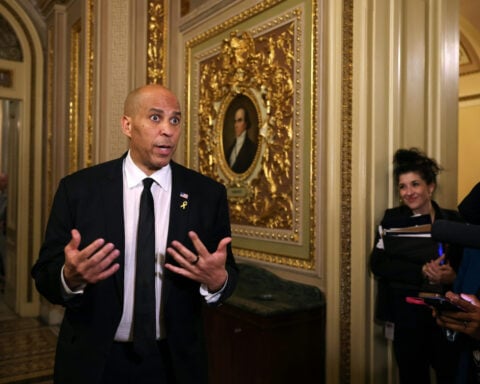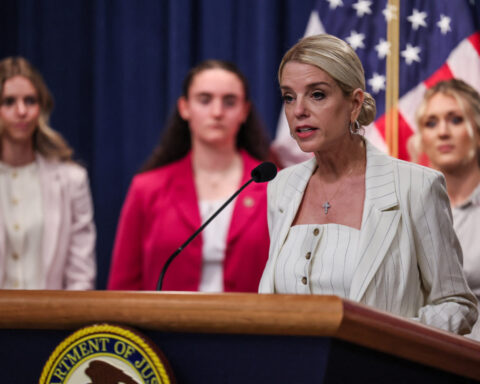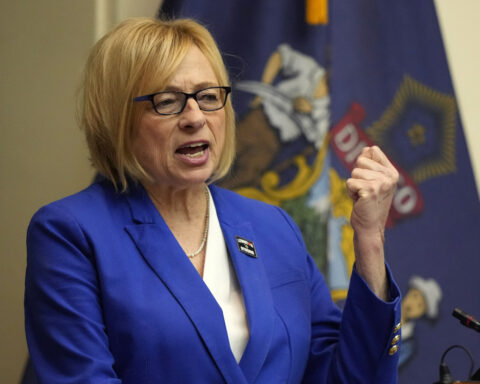WASHINGTON (AP) — The Supreme Court on Wednesday seemed open to a Texas law aimed at blocking kids from seeing online pornography, though the justices could still send it back to a lower court for more consideration of how the age verification measure affects adults' free-speech rights.
Texas is among more than a dozen states with such laws aimed at blocking young children and teenagers from viewing pornography. The states argue the laws are necessary as online porn, including hardcore obscene material, has become almost instantaneous to access on smartphones online.
Chief Justice John Roberts, a member of the court's conservative majority, raised similar concerns. “Technological access to pornography has exploded, right?” he said.
The Free Speech Coalition, an adult-entertainment industry trade group, says the Texas law wrongly affects adults by requiring them to submit personal identifying information online, making it vulnerable to hacking or tracking. The adult-content website Pornhub has stopped operating in several states, citing the technical and privacy hurdles in complying with the laws.
The Free Speech Coalition agrees that children shouldn't be seeing pornography, but it argues the new law is so broadly written it could also apply to sexual education content or simulated sex scenes in movies.
The law also leaves a loophole by focusing on porn sites rather than the search engines often used to find porn, the group says in court documents. Content filtering is a better alternative to online age checks, it says.
Justice Amy Coney Barrett appeared skeptical, pointing to the growing number of ways kids can get online.
“Content filtering for all those different devices, I can say from personal experience, is difficult to keep up with,” said Barrett, who has seven children.
This isn't the first time the Supreme Court has confronted the issue. In 1996, the court struck down parts of a law banning explicit material viewable by kids online. In 2004, a divided Supreme Court ruled against a different federal law aimed at stopping kids from being exposed to pornography but said less restrictive measures like content filtering are constitutional.
Texas argues that technology has improved significantly in the last 20 years, allowing online platforms to quickly and easily check users' ages with a quick picture, making it more like ID checks at traditional stores that were upheld by the Supreme Court in the 1960s.
The states won in the 5th Circuit Court of Appeals, where a divided panel overturned a lower court and allowed the age verification requirement to go into effect. The Supreme Court previously refused an emergency appeal asking to put the age verification on hold while the legal fight continues.
Still, some of the nine justices worried that the lower court hadn't applied a strict enough legal standard in determining whether the Texas law and others like that could run afoul of the First Amendment.
“How far can a state go in terms of burdening adults showing how old they are?” Justice Ketanji Brown Jackson asked.
Justice Elena Kagan raised the concerns of a possible “spillover dangers" on other laws touching on free speech, whichever way the court rules.
Some of the justices appeared interested in the Democratic Biden administration's position that they should send the case back to the 5th Circuit for more consideration. The court could even say that such laws, when carefully written, could pass a higher standard since everyone agrees keeping porn away from kids is a worthy goal, said Principal Deputy Solicitor General Brian Fletcher.
Other states with similar laws include Tennessee, Arkansas, Indiana, Kansas, Louisiana, Mississippi, Montana, Oklahoma, Utah and Virginia.
The Texas law carries fines of up to $10,000 per violation that could be raised to up to $250,000 per violation by a minor.
The court is expected to decide the case by June.
___
Associated Press writer Jonathan Mattise in Nashville, Tennessee, contributed to this report.
___
Follow the AP's coverage of the U.S. Supreme Court at https://apnews.com/hub/us-supreme-court.

 Trump has begun another trade war. Here's a timeline of how we got here
Trump has begun another trade war. Here's a timeline of how we got here
 Canada's leader laments lost friendship with US in town that sheltered stranded Americans after 9/11
Canada's leader laments lost friendship with US in town that sheltered stranded Americans after 9/11
 Chinese EV giant BYD's fourth-quarter profit leaps 73%
Chinese EV giant BYD's fourth-quarter profit leaps 73%
 You're an American in another land? Prepare to talk about the why and how of Trump 2.0
You're an American in another land? Prepare to talk about the why and how of Trump 2.0
 Chalk talk: Star power, top teams and No. 5 seeds headline the women's March Madness Sweet 16
Chalk talk: Star power, top teams and No. 5 seeds headline the women's March Madness Sweet 16
 Purdue returns to Sweet 16 with 76-62 win over McNeese in March Madness
Purdue returns to Sweet 16 with 76-62 win over McNeese in March Madness
